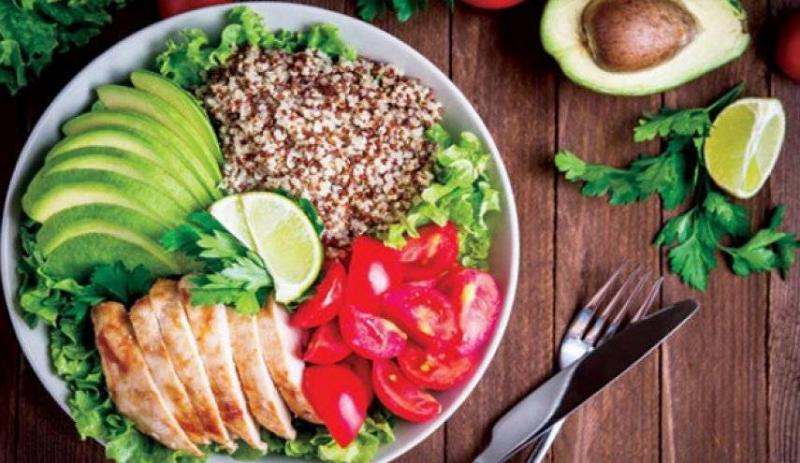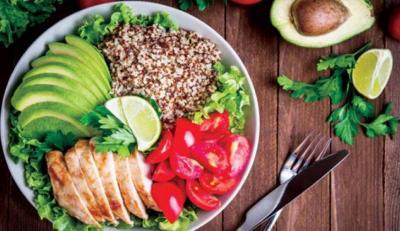What often kills the joy or hinders attempts at following a healthy diet is when it turns into a burdensome or boring task. However, it is wonderful to be able to enjoy delicious meals while maintaining a healthy weight. There are many tips regarding what kinds of food to eat and avoid, according to the health-focused site "Boldsky." Proper nutrition helps prevent cancer, heart disease, and other serious illnesses, and it assists individuals in shedding unhealthy excess weight. The report presents the best 10 rules for healthy eating, based on scientific advice for choosing foods that enhance health, prevent disease, and maintain or lose weight. It is essential to note that these guidelines apply to healthy individuals; those with any health conditions should consult their healthcare provider first.
**Breakfast**
**Rule 1:** Ensure that breakfast does not exceed 300 calories. You can have apples, oats, or soup.
**Rule 2:** Breakfast should include at least 10 grams of protein and a small amount of healthy fats and fiber. If breakfast includes grains, they should be whole grains, not refined. Healthy protein sources include eggs, milk, yogurt, legumes, and peanut butter.
**Lunch**
**Rule 3:** Make sure that lunch does not exceed 400-500 calories. Simple ways to reduce calories in your meal include skipping seconds, using low-calorie alternatives (e.g., low-calorie butter), using a small plate for lunch, and avoiding watching TV while eating.
**Rule 4:** Half of lunch should consist of vegetables. If the lunch consists of vegetables and rice, half the plate should be filled with vegetables only.
**Dinner**
**Rule 5:** Dinner should not exceed 400 calories. It is not advisable to have a heavy meal at night.
**Rule 6:** The dinner plate should also consist of 50% non-starchy vegetables (such as carrots, leafy greens, cabbage, pumpkin, cucumber, green onions, celery, tomatoes, peppers, mushrooms, broccoli, okra, eggplant, and cauliflower) along with 25% protein and whole grains.
**Snacks**
**Rule 7:** When there is a gap of more than 3 hours between main meals, you may enjoy a snack, but it should not exceed 100 calories. Suggested snacks include popcorn, fruits, almonds, fruit juices, carrots with hummus, and apple slices with peanut butter.
**Rule 8:** Ensure that your snacks contain healthy fats, fiber, and proteins to keep you feeling full and reduce cravings, while avoiding any processed foods.
**Rule 9:** You can treat yourself to your favorite food once a day if it does not exceed 100 calories.
**Rule 10:** If you crave processed foods, you can indulge (only) once a month, or you can buy all the ingredients in their natural form and prepare them at home.
**The Golden Rule of Healthy Eating**
Eat foods that contain 5 ingredients or fewer, as the ingredients in most processed (and unhealthy) foods will definitely exceed five and contain numerous additives that you know little about.
**Additional Tips**
- Hunger does not help in weight loss; it can lead to overeating.
- Limit the intake of monounsaturated and polyunsaturated fats, known as "good fats," as they are beneficial for heart health and cholesterol.
- Reduce sodium and sugar consumption.
- Consume meat and fish in moderation, opting for small portions accompanied by plenty of vegetables.
- Do not eat until you are full.
- Decrease the frequency of dining out and consuming takeout meals.
- Drink water and fresh juices, avoiding soft drinks and energy drinks.
**For Enjoyment and Benefit**
Finally, enjoy your healthy food and do not treat it as a "chore" or "temporary phase." Eat in a way that makes the food you consume beneficial towards a lifestyle based on healthy choices that will work in the long term. Always remember that food should be delicious and nutritious, and eating should not just be about obtaining energy.




